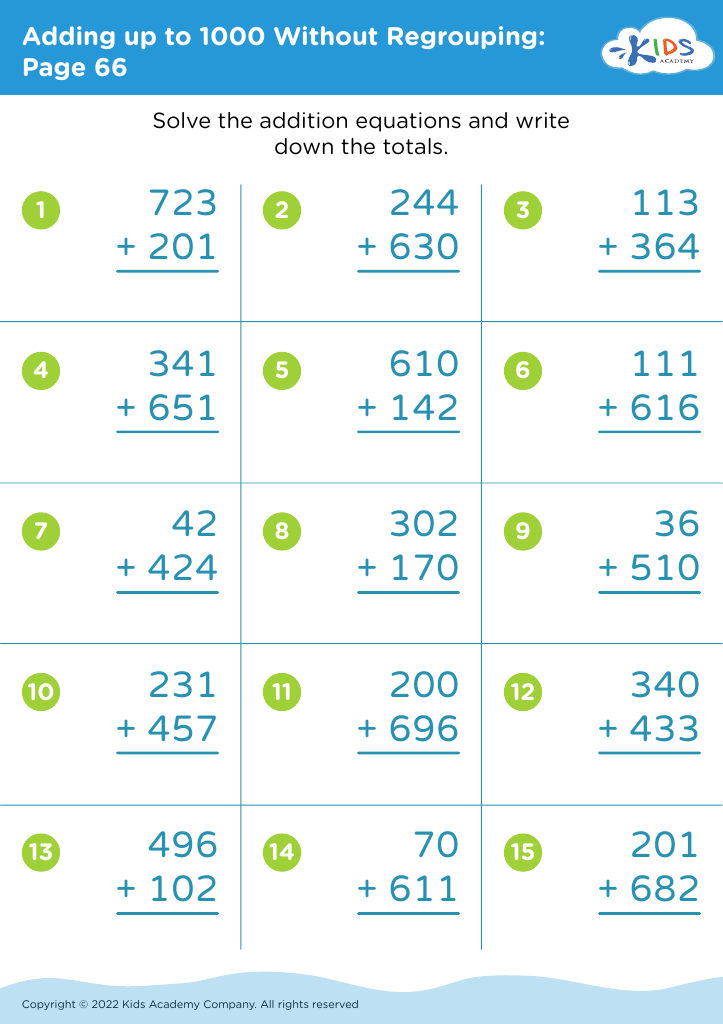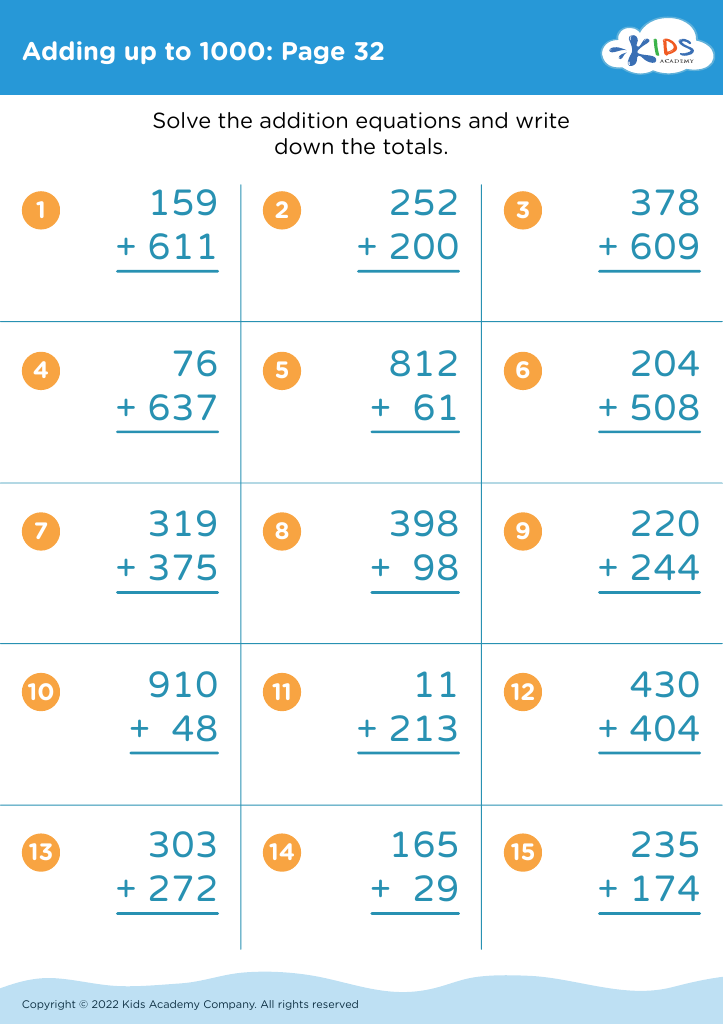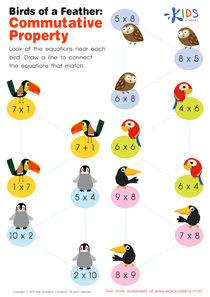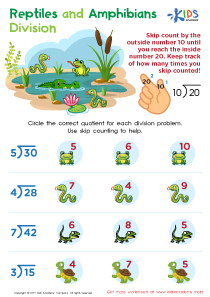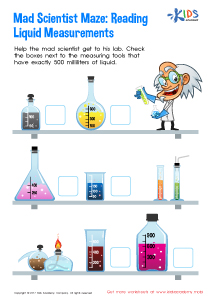Recognize shapes Grade 3 Addition & Subtraction Worksheets
4 filtered results
-
From - To
Discover our "Recognize Shapes Grade 3 Addition & Subtraction Worksheets" designed to enhance your child's geometric recognition alongside essential arithmetic skills. Ideal for third graders, these worksheets seamlessly blend fun shape identification with fundamental addition and subtraction practice. Each sheet presents engaging activities that help solidify math concepts while encouraging problem-solving and logic. Perfect for classroom use or at-home enrichment, our expertly crafted resources support a comprehensive understanding of shapes and arithmetic operations. Empower your young learner with the tools they need to succeed in math with our interactive and educational worksheets from Kids Academy.
Recognizing shapes and mastering addition and subtraction are foundational skills for Grade 3 students, serving as crucial building blocks for future academic success. Parents and teachers should prioritize these areas for several key reasons. Firstly, recognizing shapes enhances spatial awareness and geometrical understanding, which are essential for subjects like math, science, and even art. Comprehending shapes and their properties helps children visualize and manipulate objects, supporting cognitive development and problem-solving skills.
Understanding and being proficient in addition and subtraction go beyond simple arithmetic; these skills are pivotal for more complex mathematical concepts such as multiplication, division, fractions, and algebra. These basic operations reinforce logical thinking, pattern recognition, and number sense, providing a strong mathematical foundation that students will rely on throughout their education.
Moreover, fostering these skills helps in everyday life situations. From calculating money and understanding time to solving daily problems and tackling more complex tasks, children who are confident in addition, subtraction, and shape recognition are better equipped to handle various real-world scenarios. Engaging activities, hands-on learning, and interactive experiences in these areas can boost students' confidence, promote a positive attitude towards math, and lay the groundwork for long-term academic improvement and success.
